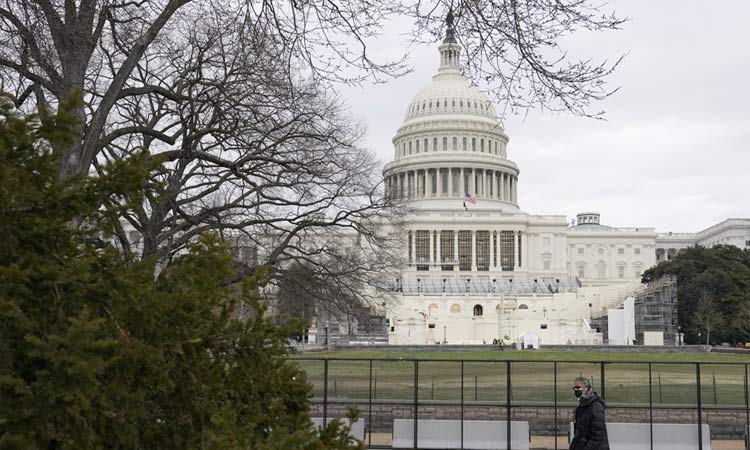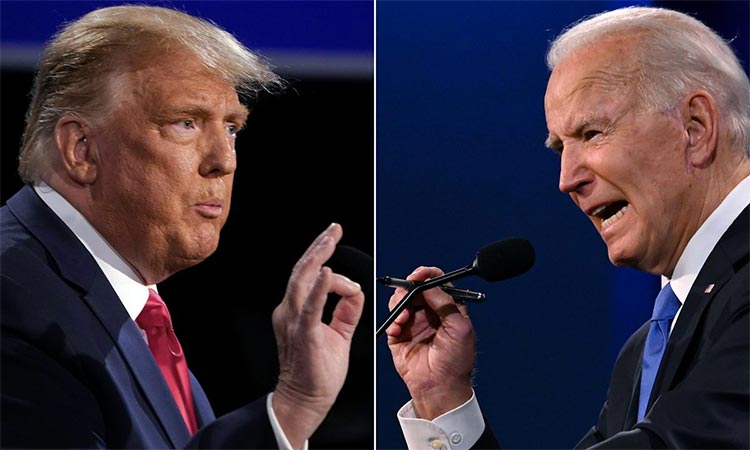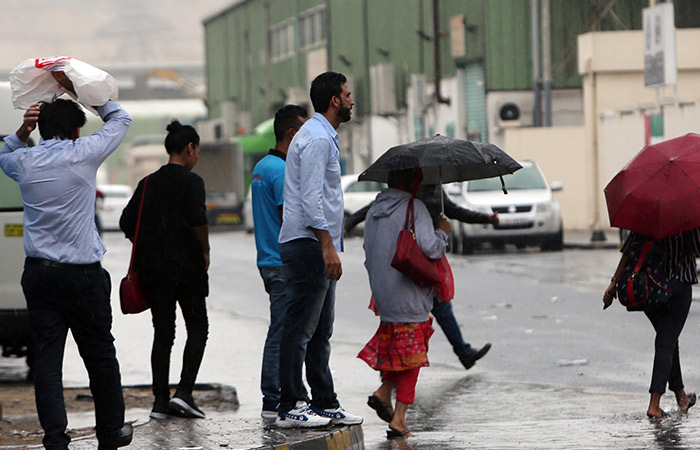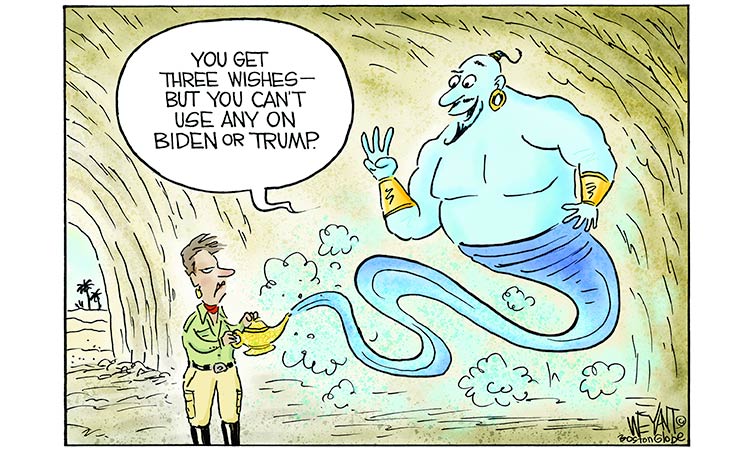India polls should shun divisive rhetoric
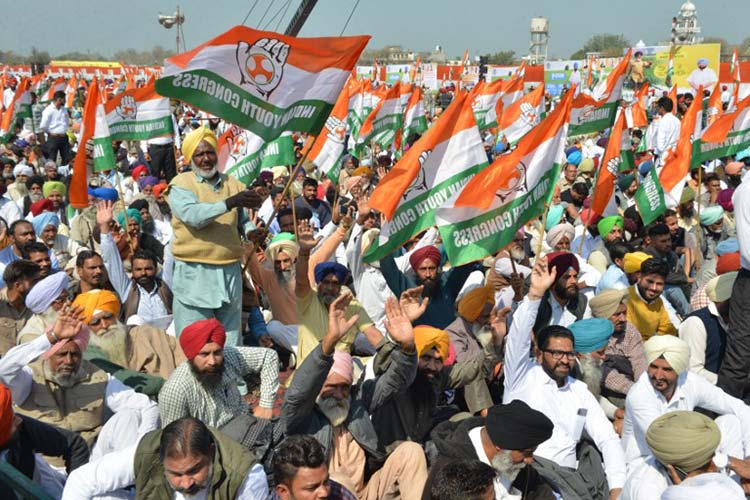
Congress party supporters hold party flags during a rally in Punjab. AFP
Political leaders from all parties should stick to dignified conduct and not stoop low by resorting to divisive rhetoric merely for the sake of votes. All parties should tell their cadre to shun violence, stick to democratic norms and not allow the heat of the polls to be the reason for inciting hatred among communities.
The fact that about 900 million people will vote in a staggered process can help the authorities to deploy tens of thousands of troops to prevent outbreaks of violence and the capture of voting stations by party activists.
Considering that 68-year-old Prime Minister Narendra Modi has risen to become one of India’s most polarising leaders, the poll will test whether his right-wing policies still have people support when he runs for a second term, against Rahul Gandhi of the Congress Party.
Modi guided the Bharatiya Janata Party (BJP) to a landslide victory in 2014 to form the country’s first majority government in almost three decades, but indications are that the party’s divisive policies have led to erosion of support on the ground.
Rahul Gandhi, the scion of the Nehru-Gandhi dynasty, which has provided three prime ministers since India’s independence in 1947, has gained some political capital by wresting three key states from Modi’s BJP at the end of 2018. The states form part of the Hindi “Cow Belt” region of some 475 million people, where the BJP has its core support base.
Not only has Rahul Gandhi, seen earlier as a lacklustre leader, become a serious challenger, he has also gone on the offensive over Modi’s economic record, with the latest Congress state wins attributed to the prime minister’s perceived failure to help impoverished farmers and to create enough jobs.
Mind-boggling figures speak volumes about the challenges in holding such a gargantuan election exercise. Here are some of the bewildering numbers behind polls of this scale from the Election Commission of India:
900 million: The number of Indians eligible to vote. At the last election in 2014 there were roughly 815 million, but just 550 million exercised their franchise. In India’s first election in 1951 there were 173 million eligible voters.
85 million: The increase in eligible voters across India in this election compared to 2014, when BJP stormed to power in a landslide.
15 million: The number of eligible voters aged 18 to 19 in this election. Two-thirds of Indians are under 35.
38,325: Voters identifying as transgender, recognised by India’s Supreme Court as a distinct third gender in 2014.
1.1 million: The number of electronic voting machines required for all the ballots to be cast in the mega-election.
1 million: Polling stations to be erected for the election.
3,626: The number of political parties -- though only 1,841 are recognised by the Election Commission.
545: Seats in the lower house of India’s parliament, the Lok Sabha. Only 543 are up for grabs in this election — two are reserved for members of the country’s tiny Anglo-indian community.
And not to ignore the fact that 186 are the number of lawmakers elected to parliament in 2014 with criminal records.
While the BJP claimed that development was the party’s main focus, the reality on the ground proved otherwise with several instances where its cadres and leaders engaged in divisive politics, especially against minority communities.
India’s unemployment rate in February rose to the highest since September 2016, data from private think-tank Centre for Monitoring Indian Economy showed, even as the economy grew at its slowest pace in five quarters in the last three months of last year.
Poverty alleviation, employment, literacy and development are among the issues that need immediate attention of leaders. The last few years have seen an abatement of tolerance among communities and that’s certainly a disturbing signal, which leaders especially from the BJP need to address.
The poll results will answer whether Modi has delivered on his promises of “development for all.”
